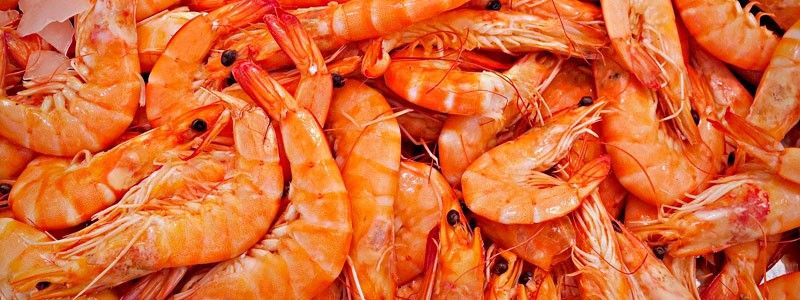Mexico on Wednesday asked the United States to remove the blockade on Mexican shrimp imports.
The Mexican government is looking for an alternative to once again allow the export of coastal shrimp to the United States and avoid economic and social effects on this sector.
First of all, the United States announced on April 30 that it suspended imports of Mexican shrimp, arguing that sea turtles are not protected in Mexico.
«The State Department suspended Mexico’s certification because its sea turtle protection program is no longer comparable to that of the United States,» the US government said in a notice published on that date in the Federal Register.
Previously, the United States mandated that Mexico establish protections to ensure that sea turtles are not trapped in trawl nets, industrial-size nets dragged underwater that often result in bycatch or unintentionally trapped animals.
Mexico enacted a requirement that fishermen use sea turtle exclusion devices in nets to prevent this from happening, but for unknown reasons, the State Department determined that expectations were not being met.
Shrimp imports
National Commissioner Octavio Almada Palafox highlighted the economic and social impact that the capture of coastal shrimp represents for the well-being of more than 63,000 Mexican fishermen and their families, as well as for more than 254,000 people who depend on this activity.
He specified that the verification visits were only to larger trawling vessels, where 118 technical deficiencies were found in 130 Sea Turtle Excluder Devices (TEDs), and not to smaller riparian vessels that since June 1, 2021 cannot export shrimp Mexican to the United States.
«The observations made by the US authorities were directly related to technical specifications, and at no time were sea turtles trapped in the nets,» the Mexican government argued on Wednesday.
For this reason, Almada Palafox emphasized that coastal shrimp fishing should not have been included at any time in the restriction of shrimp imports from Mexico to the United States.
In addition, he added, there is a precedent that in 2010, in which Mexico’s certification was withdrawn, the United States continued to import riverside shrimp originating in Mexico, with a certificate that supported its origin.
Certifications
Likewise, Almada Palafox indicated that the Government of Mexico has the technical and operational capacity to issue a certificate of origin that allows exports of shore shrimp, while the certification of shrimp from the high seas is recovered, which is expected to occur after the verification visits.
From the perspective of the Mexican government, there is scientific information that supports that the mortality of sea turtles is non-existent in the shoreline shrimp fishery, which can be verified with information derived from the Pacific Shrimp and Gulf Shrimp Research programs. Mexico and the Caribbean Sea, which offer records of sets and samplings carried out by the National Institute of Fisheries and Aquaculture (Inapesca).
The head of the National Aquaculture and Fisheries Commission (Conapesca) commented that, to achieve the certification of shrimp from the high seas, the Emerging Action Plan implemented by the Government of Mexico for the conservation of sea turtles – published in the Official Gazette of the Federation on June 9, 2021— advances in the committed times and ways.
The verification of the correct use of TEDs in larger vessels was considered in its last stage.
Fishing
This verification is also expected to take place at least seven days after the smaller vessels start fishing for shoreline shrimp.
Based on this, once the larger fleet has been reviewed, the State Department will issue a resolution on shrimp certification.
In this sense, Almada Palafox warned that the period between the start of coastal and/or artisanal fishing and that of shrimp certification generates economic and social uncertainty, since there is no shrimp export authorization, which represents an economic impact to producers and their families.
According to Sader, total annual shrimp exports to the United States reached 30,000 tons in 2019, with a value of 300 million dollars. Of this volume, 6,000 tons were exported from May to September.
![]()

